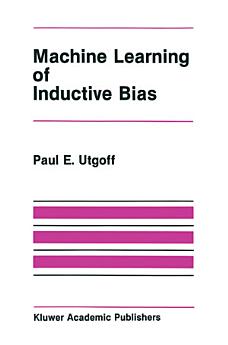Machine Learning of Inductive Bias
Paul E. Utgoff
Dis 2012 · The Springer International Series in Engineering and Computer Science Ibhuku elingu-15 · Springer Science & Business Media
I-Ebook
166
Amakhasi
reportIzilinganiso nezibuyekezo aziqinisekisiwe Funda Kabanzi
Mayelana nale ebook
This book is based on the author's Ph.D. dissertation[56]. The the sis research was conducted while the author was a graduate student in the Department of Computer Science at Rutgers University. The book was pre pared at the University of Massachusetts at Amherst where the author is currently an Assistant Professor in the Department of Computer and Infor mation Science. Programs that learn concepts from examples are guided not only by the examples (and counterexamples) that they observe, but also by bias that determines which concept is to be considered as following best from the ob servations. Selection of a concept represents an inductive leap because the concept then indicates the classification of instances that have not yet been observed by the learning program. Learning programs that make undesir able inductive leaps do so due to undesirable bias. The research problem addressed here is to show how a learning program can learn a desirable inductive bias.
Nikeza le ebook isilinganiso
Sitshele ukuthi ucabangani.
Ulwazi lokufunda
Amasmathifoni namathebulethi
Faka uhlelo lokusebenza lwe-Google Play Amabhuku lwe-Android ne-iPad/iPhone. Livunyelaniswa ngokuzenzakalela ne-akhawunti yakho liphinde likuvumele ukuthi ufunde uxhunywe ku-inthanethi noma ungaxhunyiwe noma ngabe ukuphi.
Amakhompyutha aphathekayo namakhompyutha
Ungalalela ama-audiobook athengwe ku-Google Play usebenzisa isiphequluli sewebhu sekhompuyutha yakho.
Ama-eReaders namanye amadivayisi
Ukuze ufunde kumadivayisi e-e-ink afana ne-Kobo eReaders, uzodinga ukudawuniloda ifayela futhi ulidlulisele kudivayisi yakho. Landela imiyalelo Yesikhungo Sosizo eningiliziwe ukuze udlulise amafayela kuma-eReader asekelwayo.








